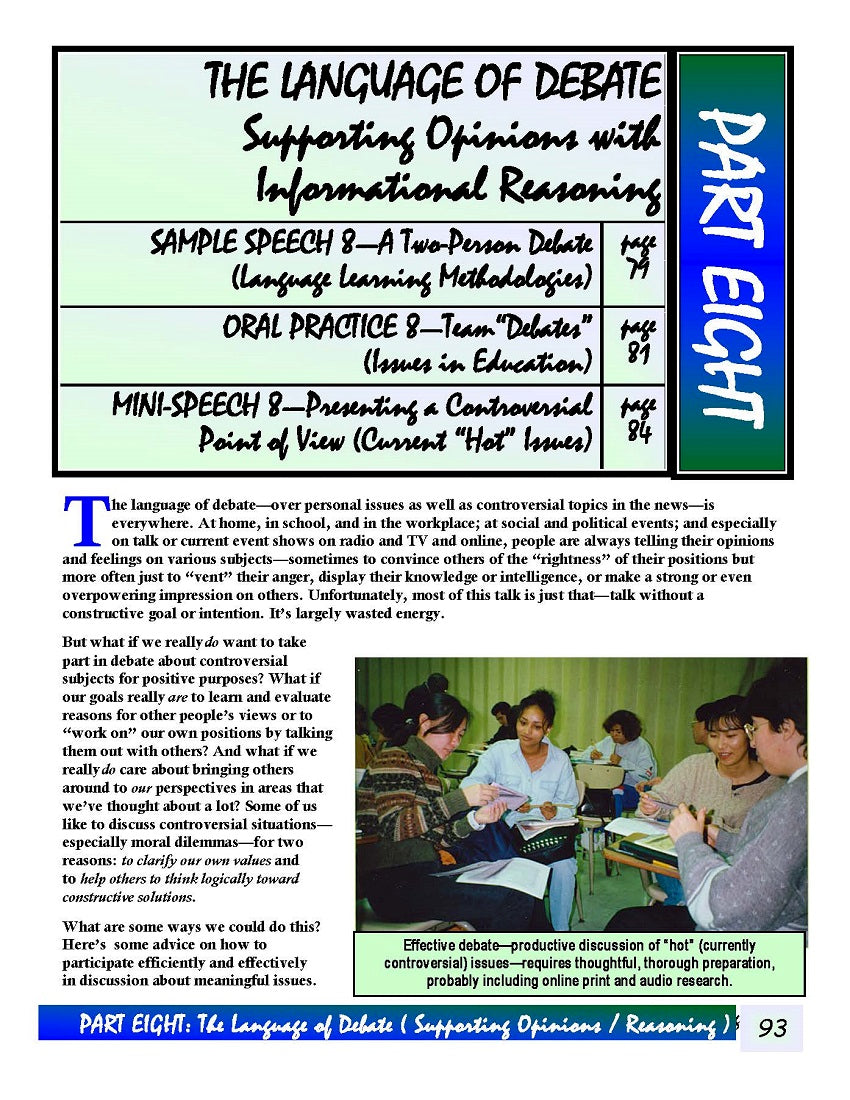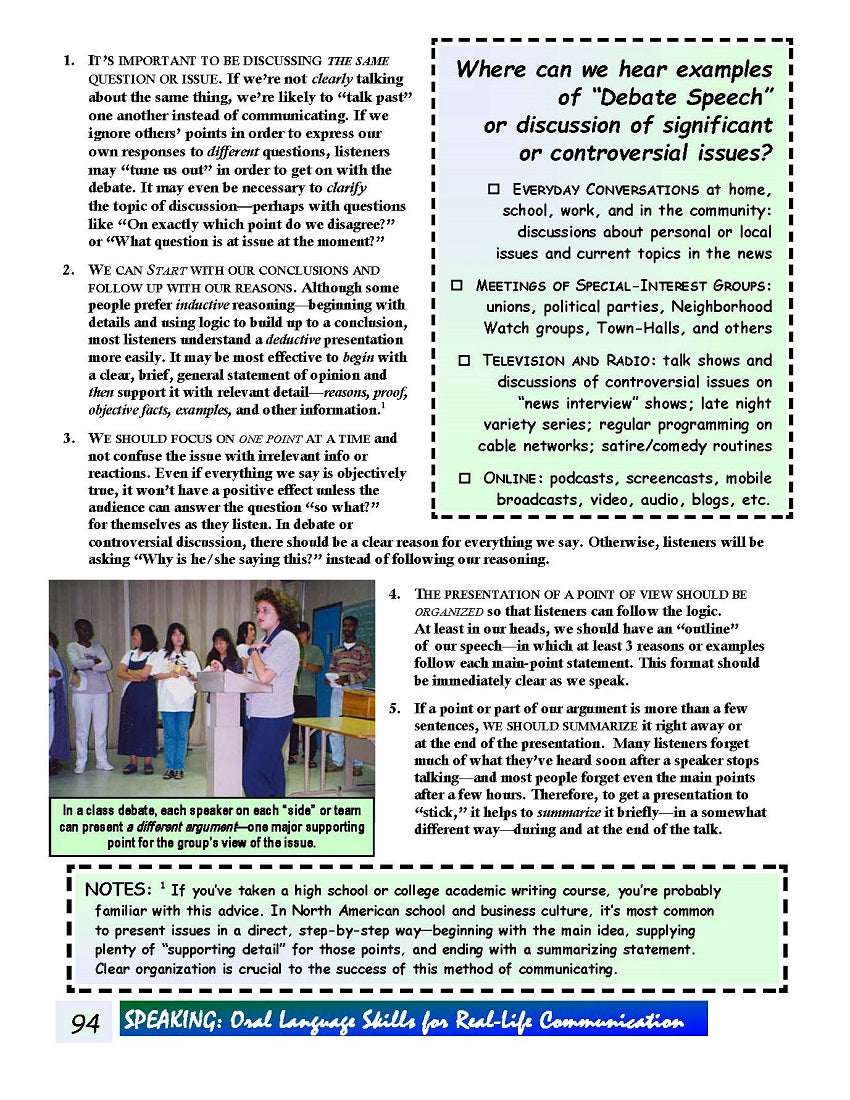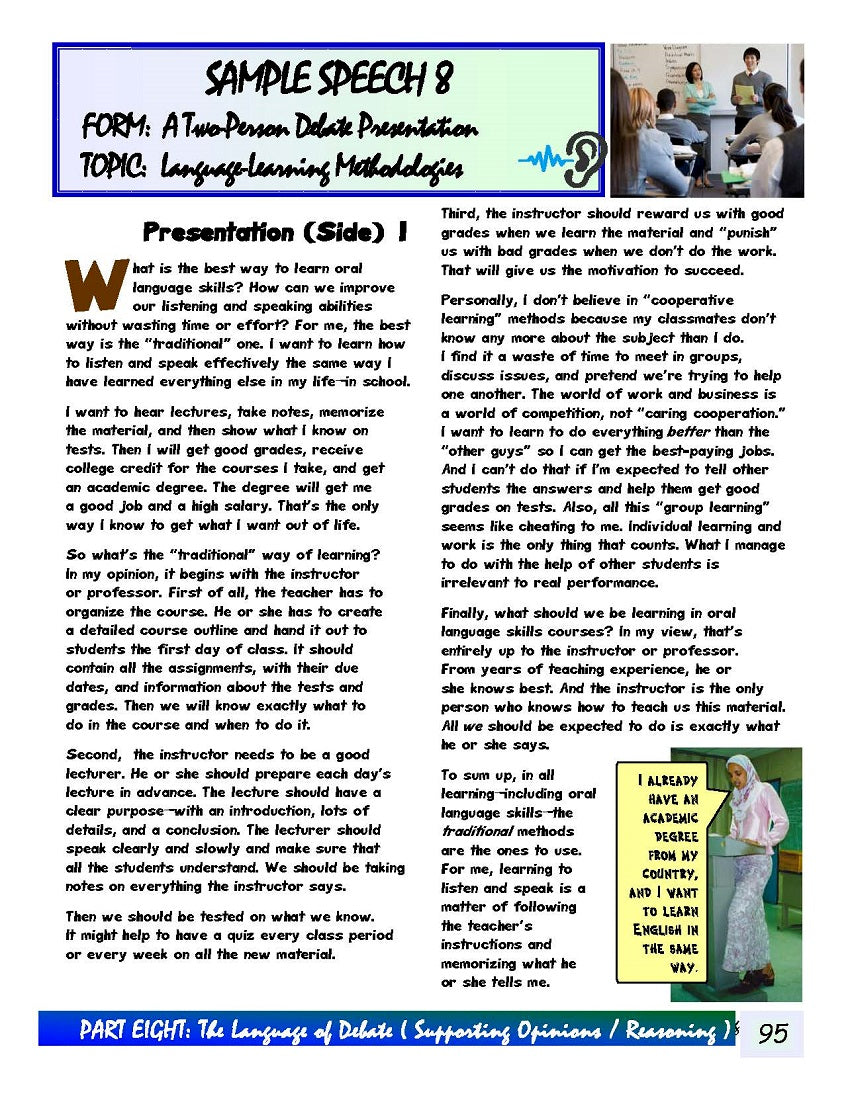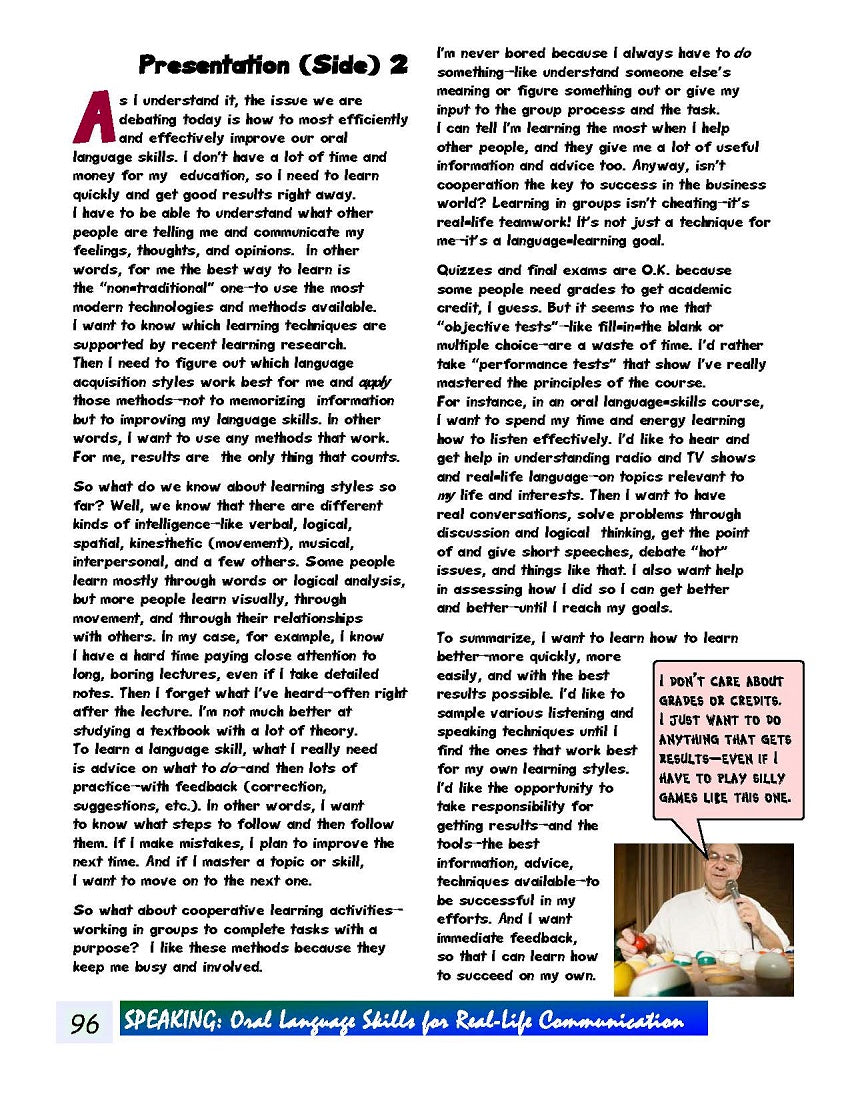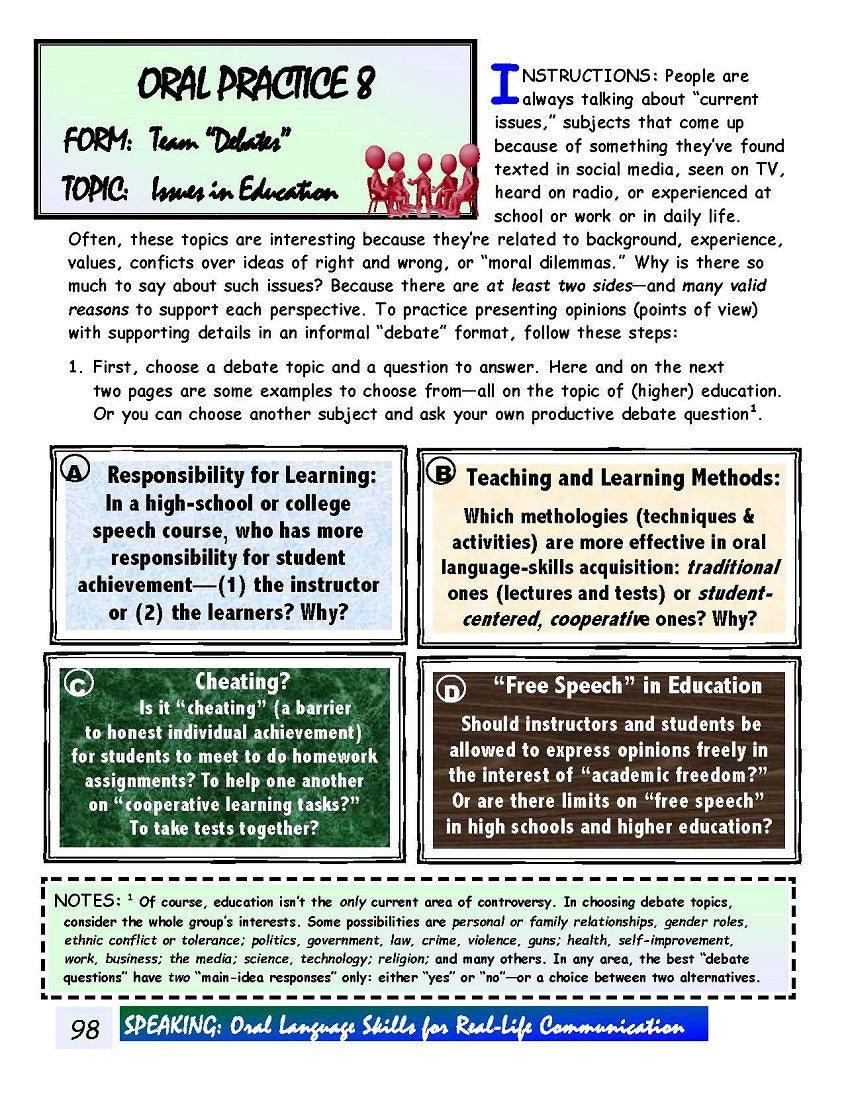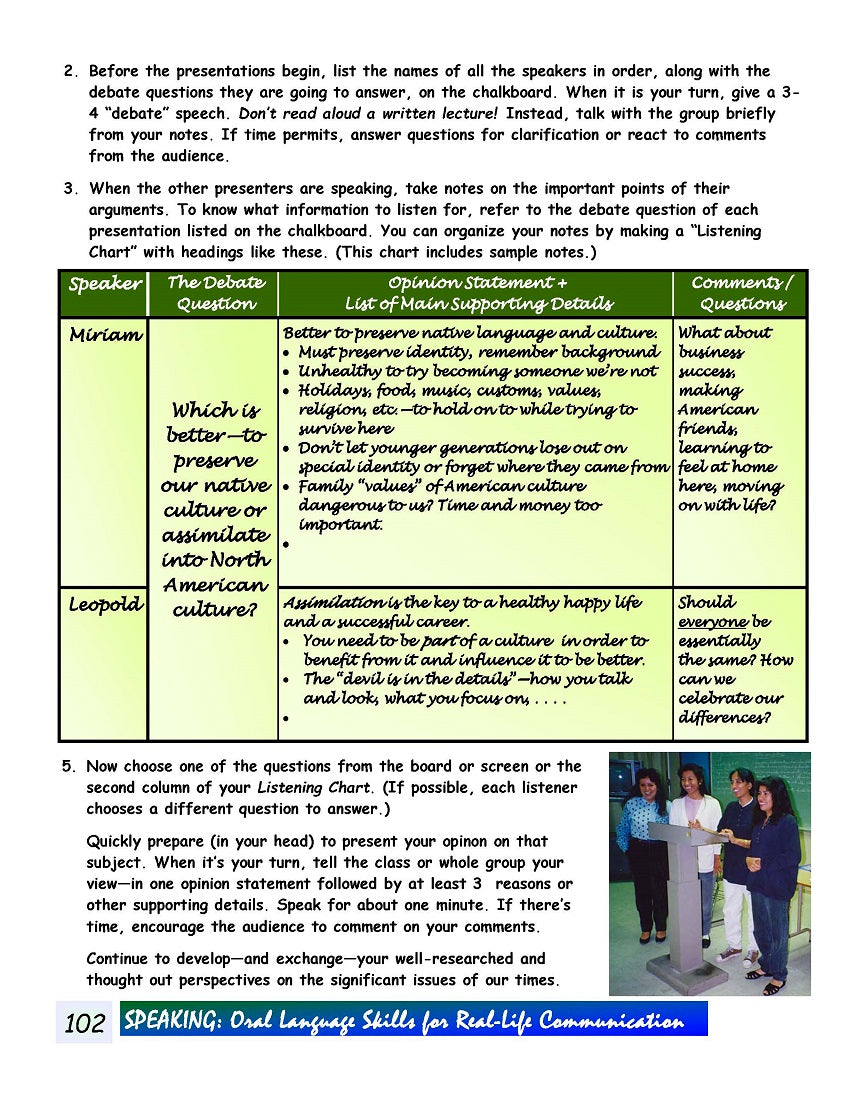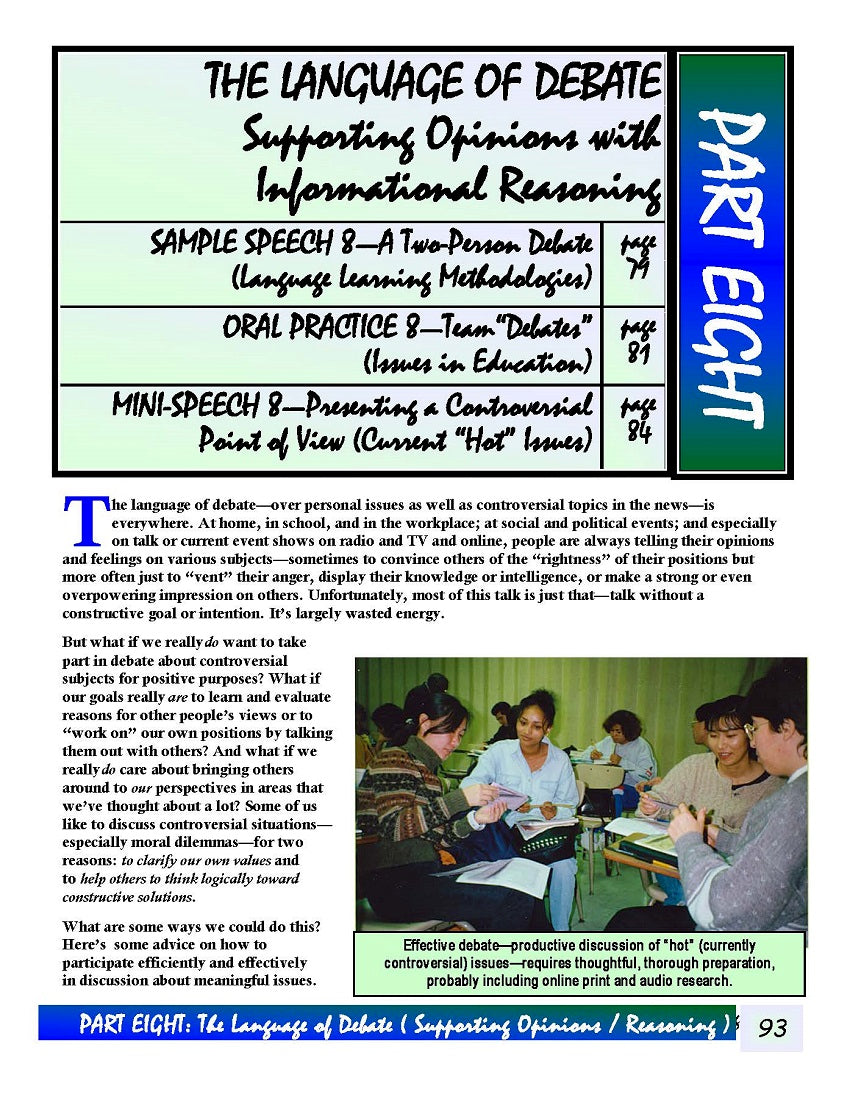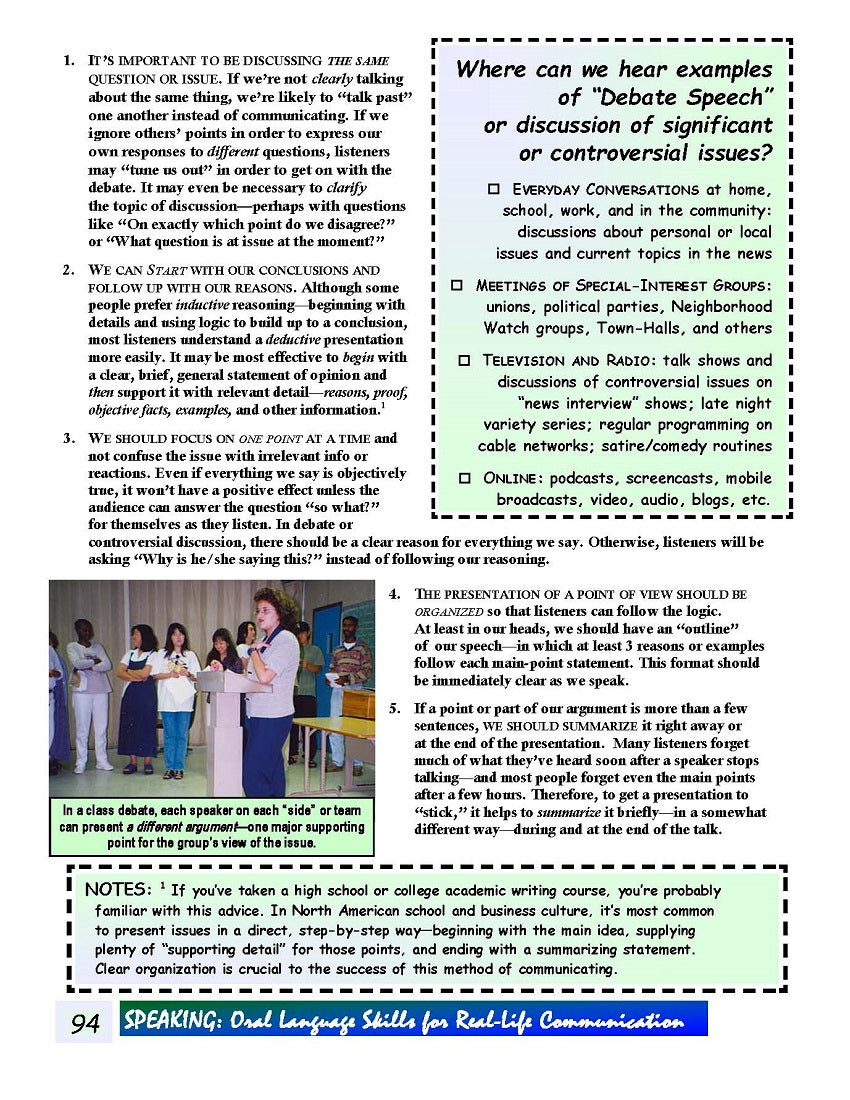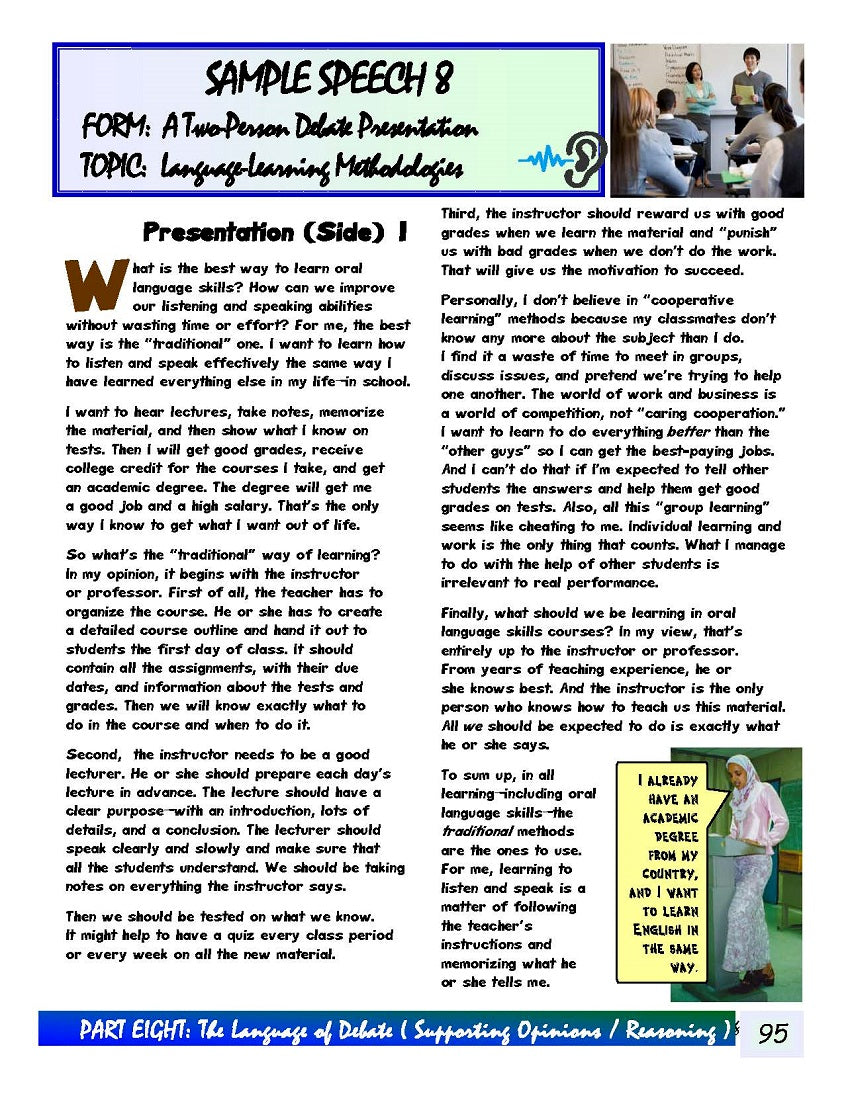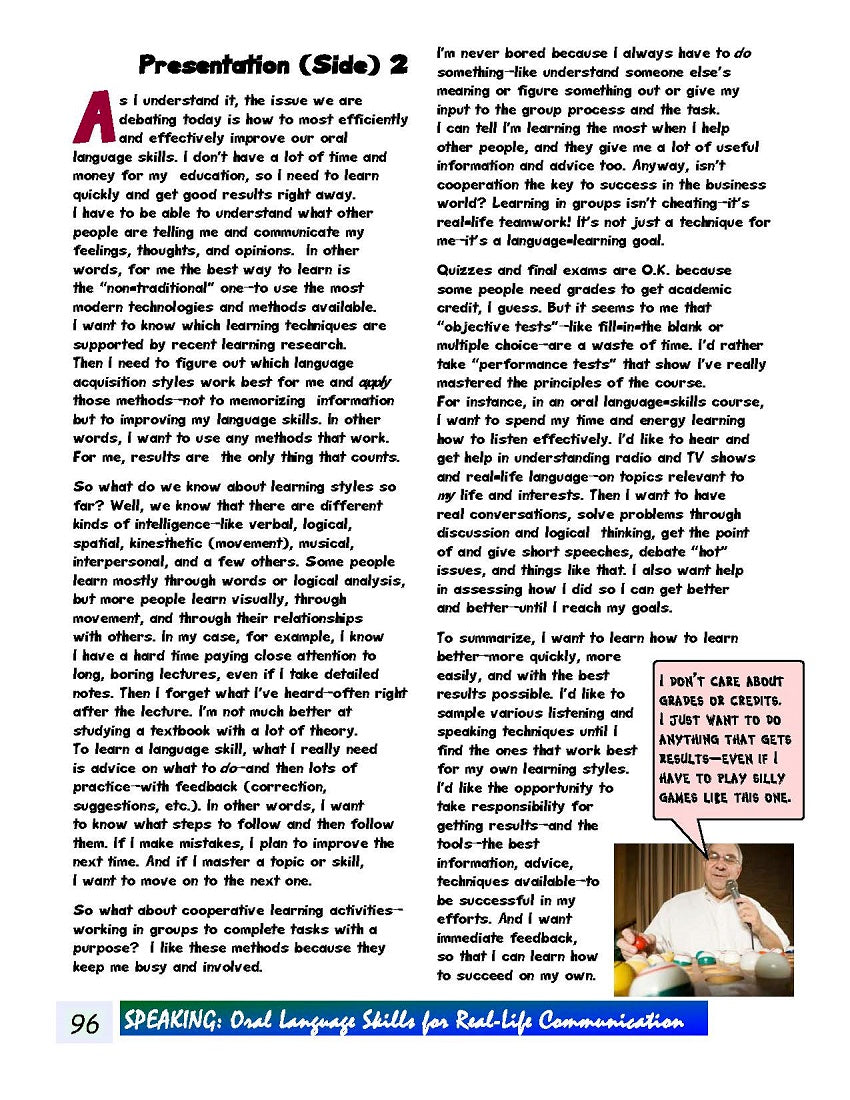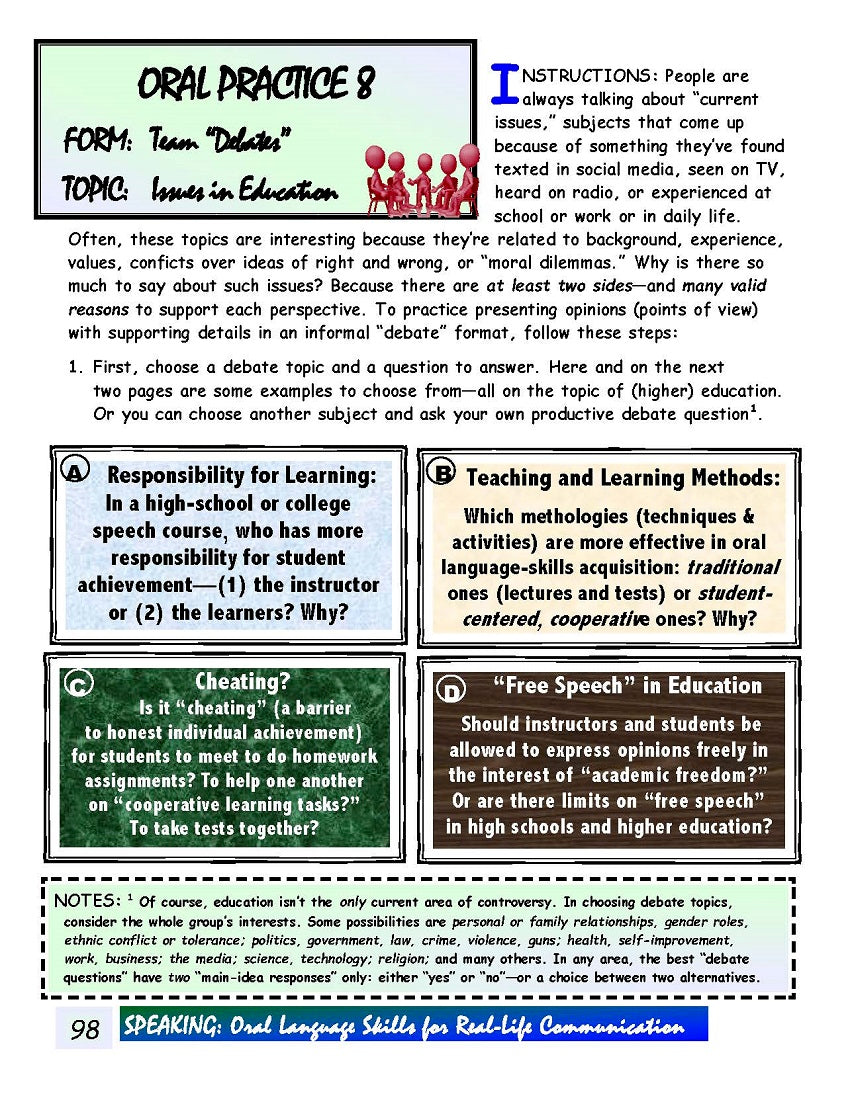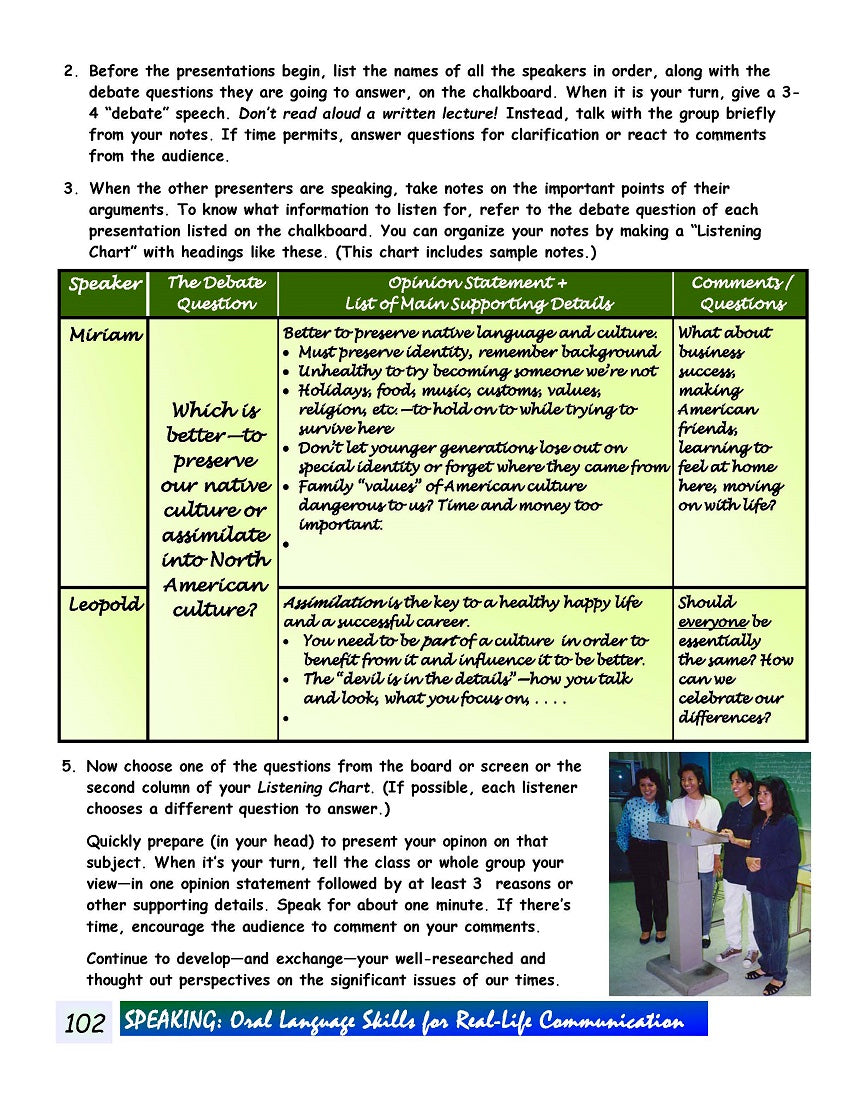Work/Life English
E-10.14 Debate Controversial Issues for Positive Purposes
E-10.14 Debate Controversial Issues for Positive Purposes
Part Eight of Speaking: Oral Language Skills for Real-Life Communication = The Language of Debate: Supporting Opinions with Informational Reasoning, pages 93-102
10 pages
Who It’s For: (Teachers of) Advanced Students of Language Who Want to Evaluate Reasons for the Views of Others—and Strengthen Arguments for Their Own Positions
Why It’s Useful: Unfortunately, most “debate” in the media or online is just talk—without a practical or moral goal or intention. But instead of wasting energy, “what if we really do want to take part in debate about controversial subjects for positive purposes? . . . Some of us like to discuss controversial situations—especially moral dilemmas—for two reasons: to clarify our own values and to help others to think logically toward constructive solutions.”
Part Eight: the Language of Debate offers possible ways to use this kind of speech productively.
What You’ll Do:
[1] Looking at the “Table of Contents” of Part Eight, notice that its important words are debate, support opinions, and informational reasoning. Its “content”—topics to be “debated”—are Language-Learning Methodologies and Issues in Education.
[2] The introductory printed “lecture” recommends five possible principles to follow in discussion of issues: 1. Make sure everyone is discussing the same question. 2. Begin with conclusions and then explain reasons for them. 3. Concentrate on one point at a time; leave out what’s irrelevant. 4. Present a point of view with organized logic. 5. To stay on track, summarize whenever necessary.
[3] In Sample Speech 8, two students of English debate “Language-Learning Methodologies.” Listen (and read), check that you understand, and formulate your own opinions on the subject. Then in Oral Practice 8, choose from the supplied education-related topics (Responsibility for Learning, Cheating, “Free Speech,” Goals / & Problems in Education, Racial / Ethnic Conflicts, etc.—or your own issue. Follow steps for organized “debate” designed to have positive outcomes.
And finally, as your final activity in Speaking: Oral Language Skills for Real-Life Communication, present a Controversial Point of View on a current issue that you care about. With others on your “team,” do research; collect and organize points supporting a clear statement of your perspective. When it’s your group’s turn, give a convincing “performance.” Good luck persuading your audience! And when others present, reciprocate their careful listening and encouragement.
Couldn't load pickup availability
